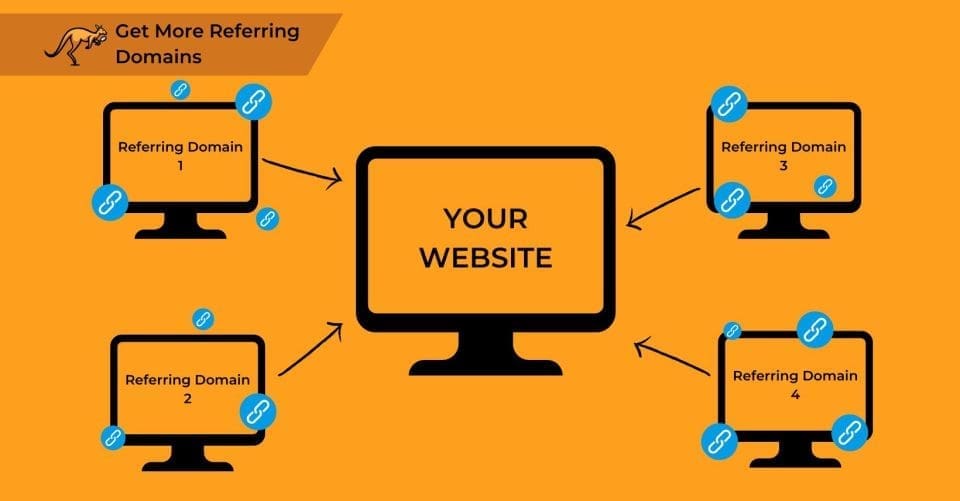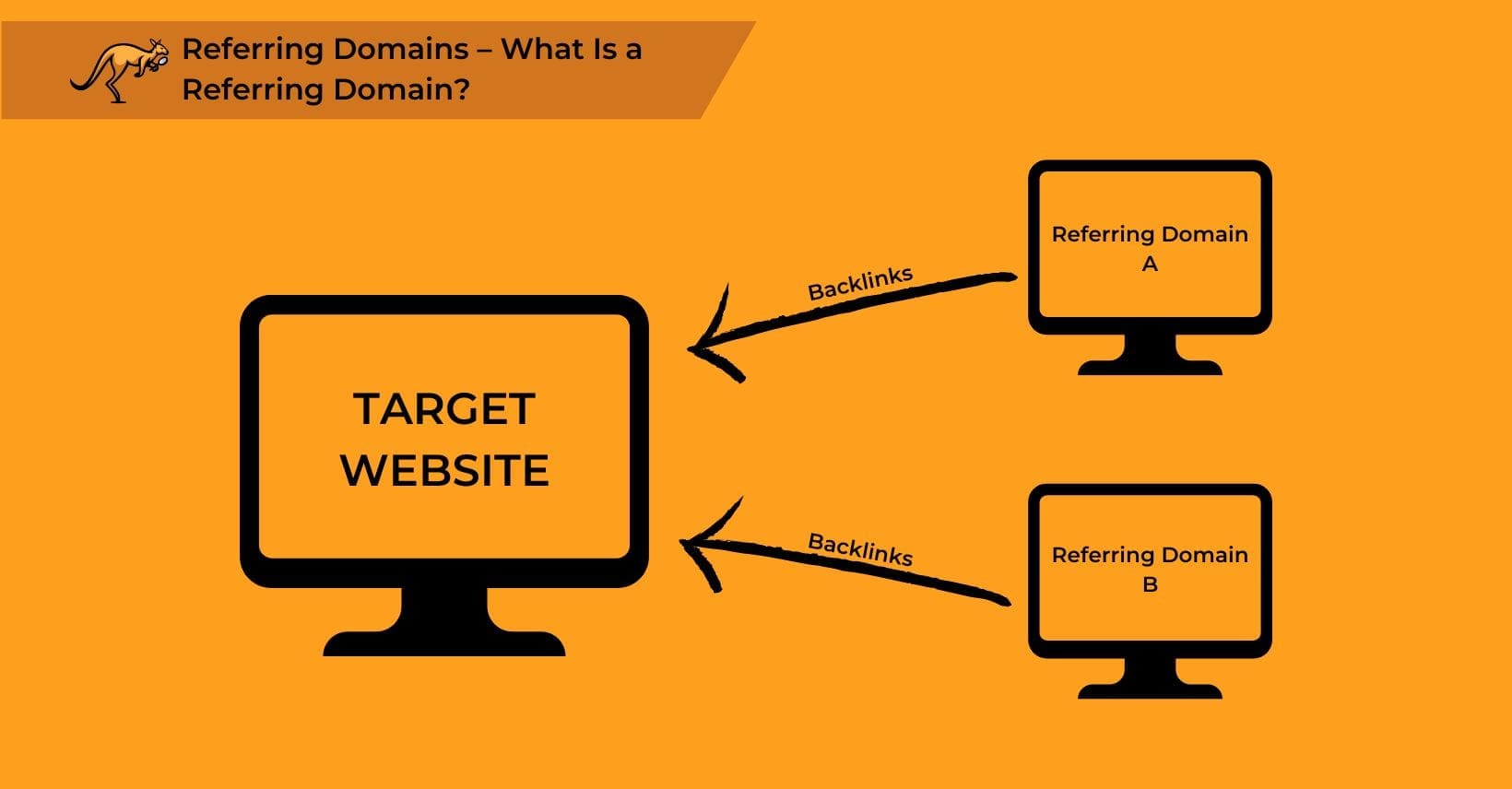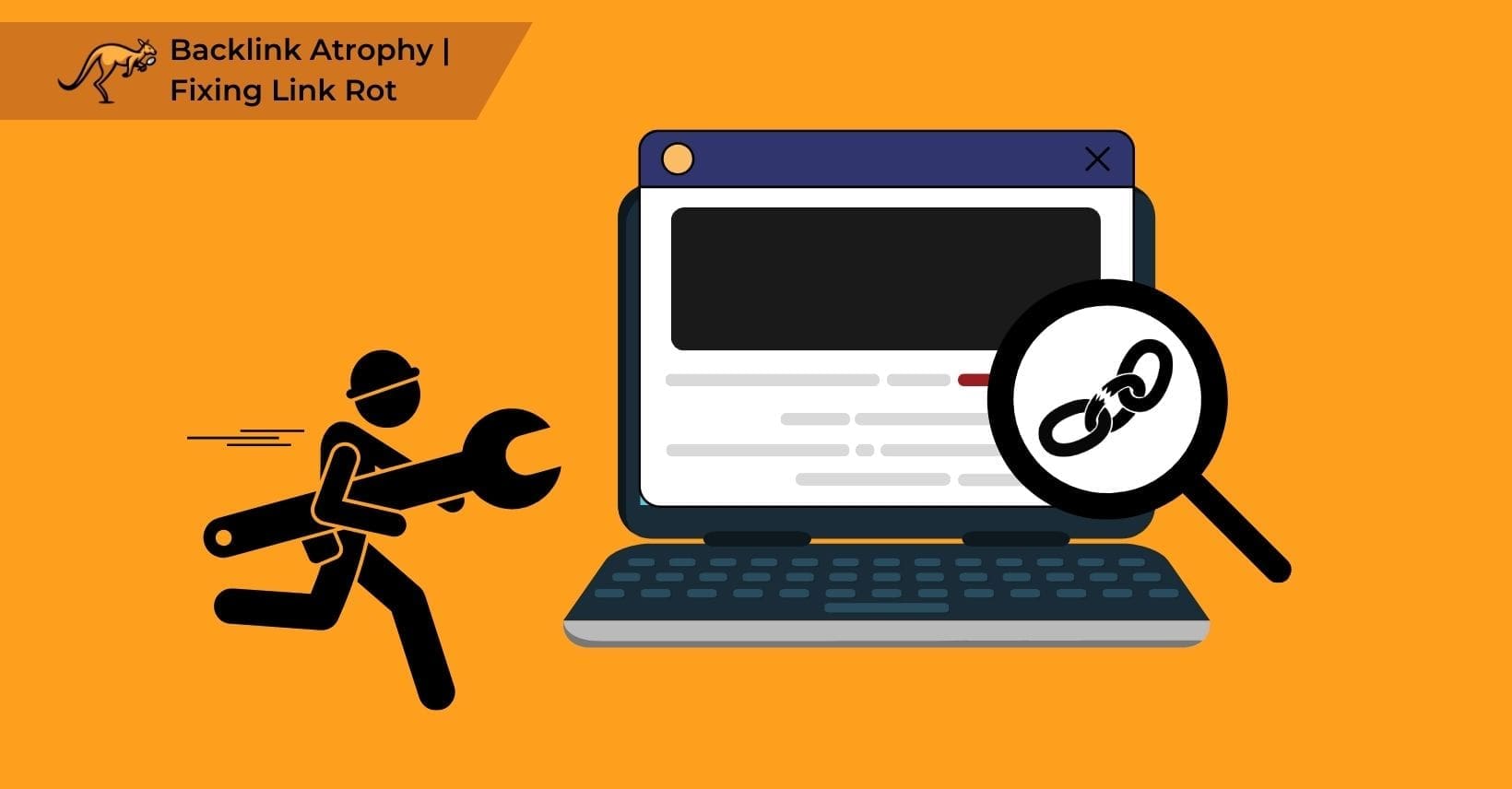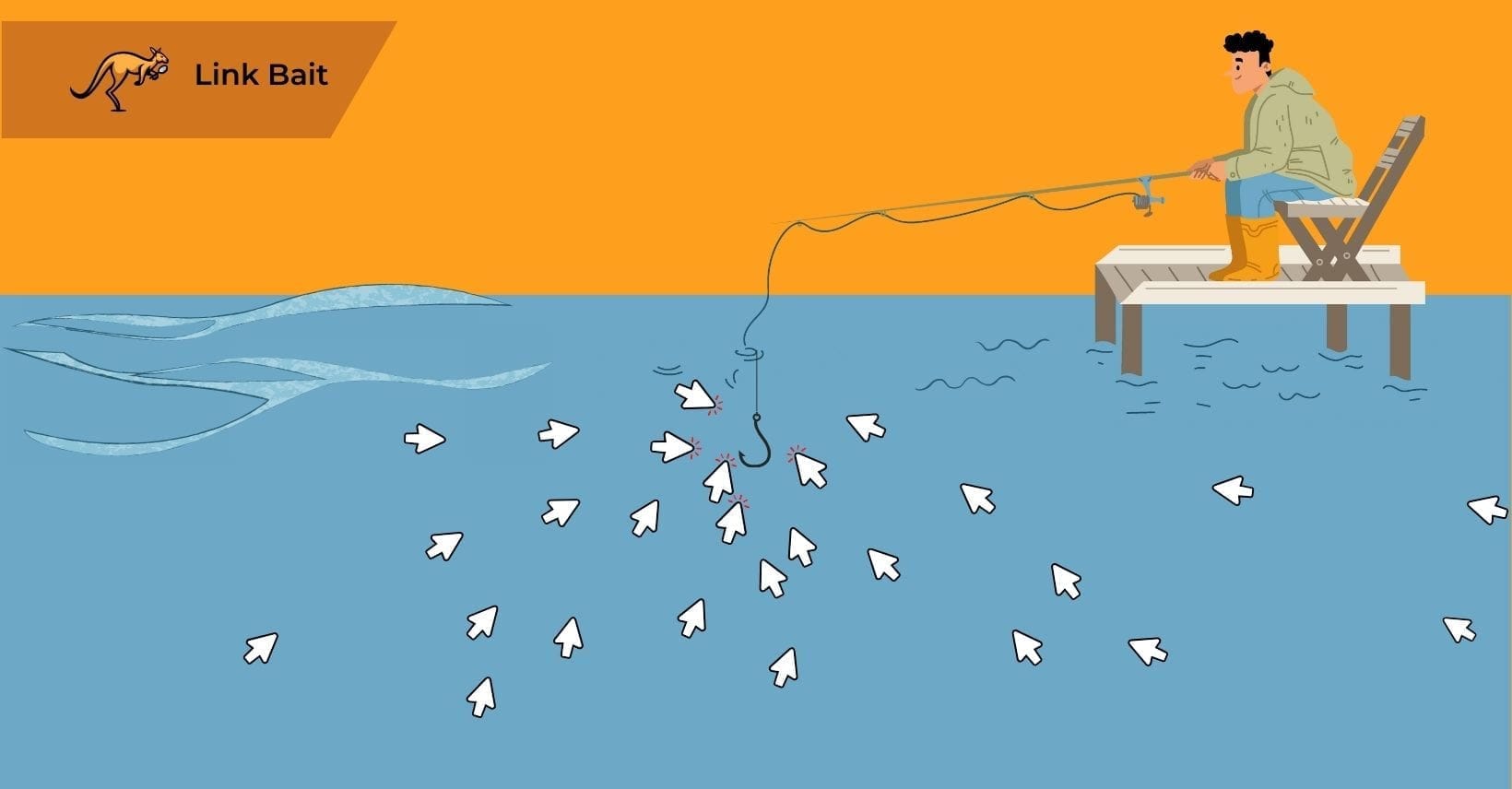Backlinks are vital to search engine optimization (SEO).
Effective backlinks increase organic traffic, improve search rankings, and support various other SEO strategies.
Before maximizing your search engine ranking potential, it’s crucial to grasp the concepts of backlinks and referring domains. A lack of understanding in these areas can halt your link-building efforts and impede the application of SEO best practices.
As we explore the function and impact of backlinks, it’s also important to consider the role of referring domains. What exactly are referring domains, and how do they contribute to SEO?
What are Referring Domains?
A referring domain is any website that links to your site, serving as a node within your site’s backlink profile. Referring domains represent the unique websites that contain one or more backlinks pointing to your website. Each new link from a different domain is an agent that affirms your site’s relevance and authority within its network.
Such links are key in shaping how search engines assess and elevate your site’s visibility. Exploring why these connections matter not only highlights their role in improving site metrics but also sets the stage to discuss their strategic significance in the broader context of SEO.
Why are Referring Domains Important?
Many SEO strategies depend on acquiring more referring domains from reputable websites.
These domains and the backlinks they provide are crucial for climbing the ranks on search engine results pages.
However, it’s not just about the quantity of these links; the quality and relevance of each backlink also play a vital role in enhancing your site’s visibility.
Choosing the right domains and links can significantly impact your SEO effectiveness. As we tour these strategic connections further, let’s consider the underlying structures that support such online interactions.
What are Backlinks?

Backlinks are created when referring domains use their links to connect to your website. While backlinks represent individual links from any website to yours, referring domains count each unique website only once regardless of how many backlinks it provides to your site.
These backlinks are crucial because they transmit a portion of their domain authority, commonly called “link juice,” to your site. Search engines assess this quality measure to positively influence your site’s search engine optimization (SEO).
The relationship between backlinks and referring domains is reciprocal. Referring domains provide backlinks that, in turn, bolster your website’s authority. Selecting the right backlinks is essential for enhancing your SEO effectiveness.
As we consider the effectiveness of these connections, one might wonder how exactly referring domains and backlinks contribute to SEO strategies.
How are Referring Domains and Backlinks Helpful?
Referring domains and backlinks are vital for search engine optimization, which aims to enhance rankings on search engine results pages for relevant queries.
Referring domains impact website performance by increasing your site’s visibility for pertinent search topics, leading to greater brand awareness and traffic. Websites with diverse, high-quality referring domains typically experience improved search rankings, higher organic traffic, and better conversion rates compared to sites with fewer referring domains.
Backlinks and the domains they come from play a critical role in this system. These links’ relevance, quality, and quantity can significantly impact your search rankings. Suppose your site has a variety of referring domains relevant to a particular topic.
In that case, it’s more likely to show up frequently in related searches, provided your site’s content is also relevant. This principle forms the foundation of effective SEO, which is vital for any website across various niches.
As you consider the impact of these elements, you might wonder how to track and analyze the referring domains to your site.
How to Check Referring Domains On Your Site
You can check referring domains to your website using tools like Google Search Console, Ahrefs, SEMrush, or Moz, which offer detailed reports on referring domains to assess the web of connections pointing back to your site. These tools allow you to analyze both the quantity and quality of domains linking to your website.
Such tools detail the volume of backlinks and the specific websites they originate, pinpointing the exact pages and often the keywords used in links. Exclusively, external links are accounted for in these reports, distinguishing them from internal links within your site, which provide a nominal SEO enhancement compared to external backlinks.
This leads us to ponder the quality of all backlinks and referring domains, setting the stage for exploring their impact on your site’s SEO performance.
Are All Backlinks and Referring Domains Good?
Backlinks and referring domains vary in value and impact. A beneficial referring domain must meet several criteria: relevance to the target site, originating from a credible content source, linking to pertinent content on your website, and employing effective keywords.
Google prioritizes sites that provide relevance and utility, promoting those with superior, niche-supporting backlinks in its rankings. The distinction Google makes between favored and less favored referring domains hinges on their relevance and quality, influencing search ranking algorithms.
These factors assess the effectiveness of backlinks and referring domains: Relevant Referring Domains, Referring Domain Content, Referring Domain Target Content, and Referring Domain Keywords.
Relevant Referring Domains
Referring domains have the biggest SEO benefits when they are relevant.
For example, if you run a furniture store site, you want to get links from sites and web pages that are focused on furniture.
The more specific you can get, the better. If you have other websites writing articles about a specific product and linking to your page about the same product, you will get even more of an SEO boost than simply using something generic.
Google and other search engines penalize any content that is not relevant. Simply getting links from any irrelevant external websites you can is the quickest way to end up with huge SEO penalties.
Referring Domain Content
Links from high-quality sites have a bigger impact if they come from relevant content.
In general, most links from other websites will be embedded into content. This could be a blog post, an article, or even a list of partners on web pages about a business’ recent work.
The content makes a difference here. High-quality content that is relevant to the audience and the business will have a greater boost to your backlink profile.
Referring Domain Target Content
Having links from high-quality websites means nothing if you are pointing it at bland target web pages.
It is important to make sure that high-quality backlinks are going to worthwhile and relevant content. Nobody wants to click a link on an external website and arrive at an article that has nothing to do with the link or the original page.
Not only would choosing irrelevant target pages on your website harm your SEO potential, but it might also mean that your backlinks are made much weaker or even penalized by Google itself.
Referring Domain Keywords
In SEO, keywords represent the specific terms you aim to optimize to enhance search engine rankings. Every backlink directed to your site is typically anchored to a keyword or key phrase, commonly through the anchor text used for linking.
For instance, if your target keyword is “computer repairs,” it’s optimal for the backlinks from referring domains to use this phrase as their anchor text. Keywords form a fundamental component of SEO, so much so that specialized tools are developed solely for keyword research and optimization.
Given the pivotal role of keywords in connecting referring domains with effective backlink strategies, it’s important to know the practical steps for leveraging these elements to boost your website’s visibility and traffic.
How to Use Referring Domains and Backlinks
Backlinks and referring domains are primarily encountered during link building, a central activity in SEO strategy. Link building involves connecting your website with other reputable domains to inherit some of their authority, which can improve your search engine rankings.
Acquiring high-quality referring domains enhances your website’s authority and improves your search ranking. Many website owners continuously engage in link building to secure new links and leverage emerging opportunities.
Adding more referring domains maintains a broad and varied link profile and elevates your site’s ranking in search engines, giving you an edge over competitors due to increased domain authority. Search engines like Google use the number and quality of referring domains as a primary ranking factor, with sites having more high-quality referring domains typically ranking higher than those with fewer domains linking to them.
Exploring these connections’ methods and impacts will illuminate why they are essential for advancing your site’s visibility.
What is Link Building?
Link building is acquiring new links to boost a website’s visibility and authority. Essentially, it involves either producing valuable content that naturally attracts links or purchasing them from other sites, though Google discourages the latter.
Link building aims to enhance the number of high-quality referring domains linked to your website. This process often revolves around exploiting novel linking strategies or developing content that could quickly become popular online.
Considering the effectiveness of these strategies, it’s worth examining how one might expand their network of high-quality referring domains.
How to Get More Referring Domains

Acquiring high-quality referring domains varies in difficulty based on your strategy. Opting for paid referring domains through a paid network can be straightforward but involves financial outlay and carries the risk of Google penalties for paid link usage.
Alternatively, employing organic digital marketing and content generation is more challenging. Still, it aligns with the recommended practices for increasing referring domains.
Numerous methods exist for securing backlinks from reputable domains, provided they are open to such collaborations. These methods include:
- Writing guest posts permitted by other sites
- Arranging for promotional posts crafted by site owners
- Developing resource content that others link to
- Publishing journalistic articles that mention your business or website
- Making contributions on other sites with the option to link back to your site
All these activities leverage content creation on external sites to include a link to your own, thereby building your link portfolio. Considering these strategies, being aware of certain pitfalls in referring domains is crucial.
Things to Avoid With Referring Domains
Referring domains are essential for digital navigation, yet they come with often overlooked rules that dictate their proper use. Avoid tactics that might compromise your online presence or credibility when utilizing these domains.
These include spammy links, engagement with low-authority websites, or any practices that search engines could see as manipulative. Such actions could negatively impact your site’s trustworthiness and search engine rankings.
As we continue to discuss online strategies, understanding what not to do with referring domains can be just as important as knowing the best practices, leading us to explore further the pitfalls to avoid in this area.
Don’t Assume That All Referring Domains are Good
Telling the difference between referring domains that help and harm your site is easy, but many people simply assume that any referring domain must be a good one.
Look at your backlink profile, and be prepared to cull out any from spam linking domains or a web page that does not relate to your site.
Remember that tools and software like Google Search Console can also help with figuring out which links actually matter and which ones may be doing more harm than good.
Only Focus on A Single Referring Domain From Each Site
Only one referring domain link is considered when a site links to you. If you have two referring domains or more from a single referring domain, only one referring domain link will actually matter. If they use the same referring domain, then you basically wasted a link.
Do not try to build more than one referring domain link per site unless the new one would be a substantially better replacement for the original. For example, getting a link from a blog post on the same domain as another major article might be entirely pointless.
Of course, if you are trying to build multiple backlinks for multiple sites or specifically want the inbound links for organic traffic reasons, that is different. Just remember that multiple links make no real difference to the Google search algorithm.
Always Grow Your Number of Backlinks
Unless you are removing some backlinks due to spam issues or lose some due to a site removing some content, you always want to push for a higher number of referring domains if possible.
Check backlinks regularly and never settle for “having enough” – it only takes a few sites going down or closing to wipe out multiple backlinks.
Not all linking domains are going to be perfect, and some might only be average at best. However, if you increase the number of referring domains you get and manage to make them more diverse, you can boost your SEO even further than just sticking to top-tier links.
Don’t Forget Your Target Audience
When pursuing higher search rankings, referral traffic, or organic search traffic, keeping your audience and niche at the forefront is essential.
These factors form the foundation for acquiring high-quality referring domains. Regardless of its value, a linking domain loses relevance if it doesn’t align with your site, the specific target page, or your audience.
Tools such as Google Search Console prove crucial in maintaining this alignment. As we further explore the value of referring domains, one might wonder about their overall effectiveness in boosting a website’s presence.
Is Investing in Referring Domains Beneficial?
Investing in high-quality referring domains enhances your SEO. By strategically choosing relevant and reputable domains, you can increase your site’s authority and attract targeted traffic. It’s essential to select domains that align with your niche and collaborate with ethical partners to avoid search engine penalties.
This approach optimizes your online presence and promotes sustainable SEO success. As you consider integrating these strategies, it may be time to explore the advantages of partnering with Searcharoo as your referring domains provider.
Selecting Searcharoo as Your Referring Domains Partner
Choosing the right partner for managing and acquiring referring domains can significantly enhance your SEO strategy. Searcharoo stand out as a competent ally for several reasons.
First, we specialize in identifying high-quality domains relevant to your specific industry, ensuring that each link we acquire adds real value to your website’s authority and search engine rankings.
Furthermore, we use advanced analytics to monitor the performance of acquired domains, offering transparency and ongoing optimization. Our ethical approach to SEO ensures that all our practices comply with search engine guidelines, reducing the risk of penalties.
By partnering with us, you gain access to expert advice, strategic planning, and a robust support system designed to enhance your digital presence sustainably.
This section provides a clear overview of what to consider when purchasing referring domains and why partnering with us at Searcharoo could be the right choice for managing those assets.
Summing Up: Best Practices for Referring Domains
Managing referring domains requires regular monitoring, quality assessment, and strategic acquisition of new links. Best practices include regularly auditing your referring domain profile, disavowing toxic domains, prioritizing relevant industry websites, and focusing on natural link acquisition through quality content creation rather than manipulative tactics that risk penalties from search engines.
As the foundation of most SEO, getting links from authoritative websites will always be useful. While the difference between backlinks earned by one site compared to another will obviously be dependent on their niche and goals, almost every site worth its salt will use search engine optimization like this.
Just remember to use the right tools for the job. If you’re working on Google search rankings, then options like Google Search Console are the cornerstone of your long-term SEO success. To explore more about optimizing your online visibility, head to home inspection leads and go here to access valuable resources and potential business opportunities.





